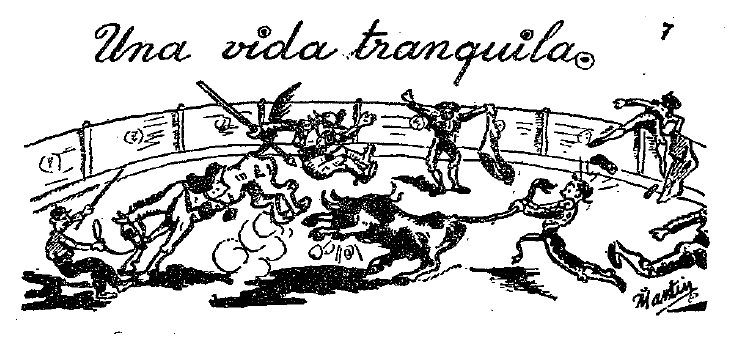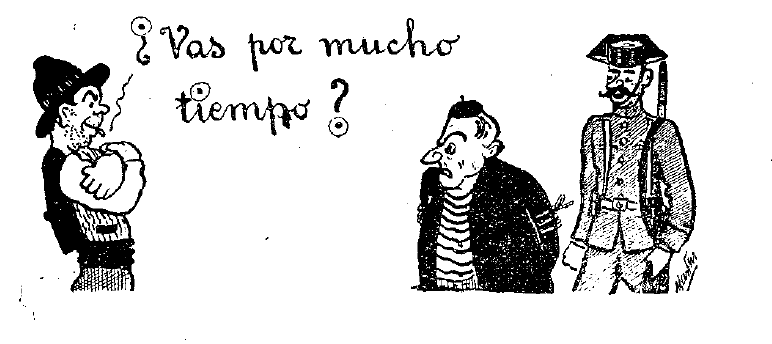
| Языки :: Испанский |
| Аудио |

 |
|
 |
|
19 |
Español |
| Lección Séptima (7ͣ) | |
| REVISION AND NOTES | |
| 1 You understand easily enough the short dialogues
which form the first six lessons. Ask for nothing more; the rest will come by degrees. Your Spanish - current Spanish, the common language - will develop as naturally as a fruit ripens. As your knowledge increases, we shall try to give you texts that will be more interesting, more characteristic from the point of view of Spanish life. A little humour does no harm; and it is often with a smile that the best work is done. |
|
| 2 The stress follows extremely simple rules. As a rule, every word ending in a vowel is stressed on the last syllable but one. Thus : amigo, mañana, todo, espero, dinero, perfectamente, etc... Those which don't follow the rule bear an "acute" accent on the syllable to be stressed : médico, marcharé, iré, vendrá, regresará... (You have surely noticed that the stressed final vowel characterizes the future of verbs). As a rule, too, words ending in a consonant, are stressed on the last syllable : doctor, director, Madrid, usted, venir, etc... However if the final consonant is an s (marking plural of nouns) or an n (marking plural of verbs), this rule does not apply ; thus we shall have in the plural : amigos, todos, semanas, etc. If, exceptionally a word ending in s or n is stressed on the last syllable, it bears an acute accent : París, después, adiós, lección, estación, etc... As we shall continue to indicate the stress by a fat letter, you will have, however, no difficulty in this respect. |
|
|
3 The pronunciation is naturally not acquired in a week;
but it is easy. |
|
| 4 The inverted question mark is placed at the beginning
of the question, to avoid all misunderstandings owing to the absence of
pronouns. Es posible means : It is possible, and ¿es posible? : Is it possible? The only difference being the punctuation in written language and the inflexion of the voice in spoken language. Vas a París : You go to Paris. ¿Vas a París? : Do you go to Paris? - The same for the exclamation mark, though its necessity is not quite so obvious. |
|
| 5 The final d in usted, Madrid, etc., can be pronounced very lightly, but, as many Spaniards don't pronounce it at all, let us follow the simplest course. | |
| 6 Nouns in o are generally masculine, those in
a feminine; but it is no absolute rule and we have seen
el día, the day. The adjectives whose masculine is in o change it into a in the feminine : un hombre tranquilo; Una vida tranquila. |
|
|
7 The article the is el before a masculine noun in
the singular, and los in the plural. |

